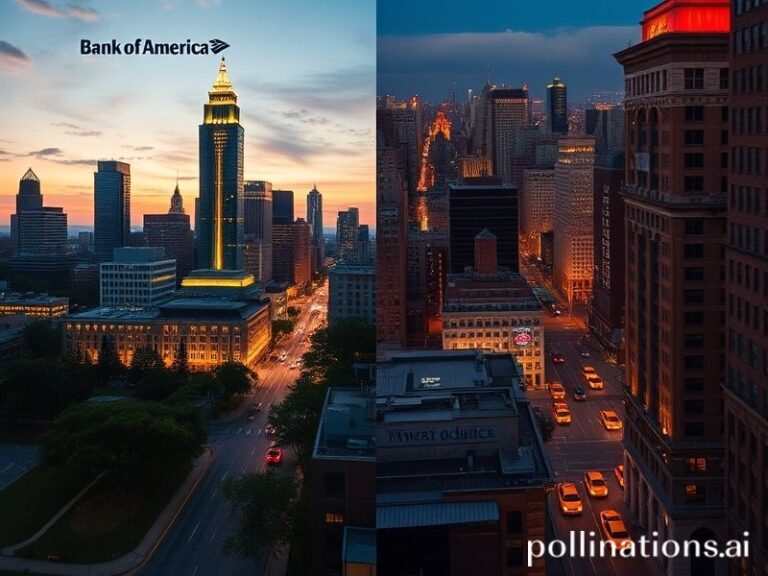Lilith Fair Rides Again: How a ’90s Girl-Power Festival Became a Global Rorschach Test for Feminism
Lilith Fair: The Documentary That Refuses to Die Quietly
By Our Correspondent in Exile, Somewhere Over the Arctic Circle
Twenty-six summers ago, a caravan of women with guitars, drumsticks, and righteous indignation rolled across North America under the banner Lilith Fair. The idea—radical at the time—was that female artists could fill amphitheatres without a single Y chromosome in the headliner slot. The new documentary, “Lilith: Notes from a Traveling Utopia,” now streaming on every platform desperate for nostalgia clicks, revisits that estrogen-powered circus. Watching it from 2024 feels like staring at an old postcard from a country that no longer issues visas: quaint, heartbreaking, and faintly ridiculous.
For the uninitiated, Lilith Fair was the brainchild of Canadian singer-songwriter Sarah McLachlan, who’d grown weary of radio programmers claiming two women on the playlist would trigger spontaneous audience menstruation. Between 1997 and 1999 the festival sold two million tickets, raised millions for domestic-violence charities, and proved—briefly—that patriarchy’s math was off by roughly one hundred percent. The documentary dutifully trots out the archival footage: Sheryl Crow in cargo pants the size of hot-air balloons, Missy Elliott spiking the Lilith punch with hip-hop, and a pre-breakdown Fiona Apple snarling at camera crews for breathing too loudly. All very heart-warming, provided your heart hasn’t been cauterized by the last quarter-century.
Yet step outside North America and the film’s glow dims like a solar eclipse over Europe. In Seoul, where K-pop idols are trained like Olympic gymnasts and female artists still get weighed in public, Lilith’s campfire feminism looks downright utopian. In Tehran, women are currently jailed for singing solo in their own cars; the documentary’s scenes of 40,000 Americans harmonizing to the Indigo Girls might as well be science fiction. Meanwhile, in Lagos, the Afrobeats explosion is minting male millionaires faster than you can say “streaming royalty,” while female artists hustle twice as hard for half the playlist space. The film’s sun-drenched footage of McLachlan hugging fans now plays like a dispatch from Atlantis.
This is not to dismiss the documentary’s achievements. Director Liz Garbus wisely resists turning the story into a Hallmark card. She interviews roadies who recall male venue managers demanding extra security “in case the lesbians riot.” She lets McLachlan admit that ticket sales dipped in Year Three once radio conglomerates stopped returning her calls. And she lingers on the awkward backstage footage of Paula Cole trying to explain to a reporter why “Where Have All the Cowboys Gone?” is actually a protest song, not a lullaby for absentee husbands. The film’s greatest strength is showing that revolution, like cheap mascara, runs by the end of the night.
Globally, the documentary lands just as every major music market is discovering—surprise!—that women can headline. Saudi Arabia’s MDLBeast recently booked EDM queen Peggy Gou for a desert rave, provided she wore sleeves. Germany’s Reeperbahn Festival now mandates gender parity on panels, though the after-hours brothels remain male-dominated. Even the Brits, who once greeted Lilith’s UK attempt with headlines like “Damsels in Dist-rock,” have belatedly launched festivals called WOW (Women of the World) in between Brexit anxiety attacks. Progress, like a hangover, arrives eventually, though rarely in the flavor you ordered.
The cruel punchline, of course, is streaming economics. In 1998 Lilith artists could still sell a CD for fifteen dollars; today they need 3,700 Spotify streams to buy a single fair-trade latte. The documentary doesn’t dwell on this, but it’s there in the hollow stares of younger interviewees who once believed guitars could double as pension plans. One former violinist for the string quartet accompanying McLachlan now drives Uber in Austin, serenading drunk tech bros for tips. “I used to open for Emmylou Harris,” she shrugs. “Now I open doors.”
Still, if you squint past the sepia filters, the film offers a sly blueprint for rebellion in less hospitable latitudes. Ukrainian punk band Death Pill, currently dodging Russian drones, cite Lilith’s DIY ethos in interviews. Chilean feminist collective LASTESIS sampled McLachlan’s “Possession” in their viral anthem against femicide. Somewhere in Mumbai, a 14-year-old girl with an out-of-tune Stratocaster has just watched the documentary on a cracked phone screen and thought, “Why not here?” That, more than any platinum plaque, is the festival’s true encore.
As the credits roll and the obligatory reunion tour rumors swirl (this time sponsored by a menopause-supplement brand), the takeaway is both uplifting and grim. Lilith Fair proved a temporary glitch in the Matrix; the documentary proves we remember glitches fondly once they’re safely archived. Utopia, it turns out, travels light—just three chords and the truth, plus a rider for biodegradable tampons. The rest of us are still waiting at the border, passports in hand, hoping the next caravan lets us hitch a ride.







